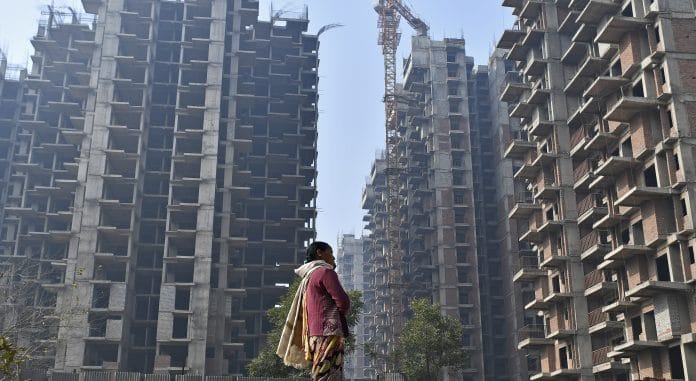The Delhi High Court recently directed Chief Minister Arvind Kejriwal to keep his promise about paying rentals on behalf of those who were unable to, during the pandemic. The judgment, while raising interesting questions about the accountability of verbal promises in a polity rife with glib politicians, also provides an opportunity to revisit the idea of rental support as an important – but until now, a neglected – avenue for social protection.
Across the world, governments have used a range of measures to support vulnerable renters during the pandemic. Many countries implemented moratoriums on eviction, but some, like Austria, Germany, Mexico and Portugal, also permitted delayed payments and offered zero-interest loans to renters (Spain and Portugal). Ireland and Luxembourg offered financial support to tenants and the United States extended an existing rental support programme to help those renters who lost their jobs during the pandemic. Housing rights activists have played a key role in pushing through these rental support policies, arguing that those facing maximum job losses are also most likely to be renters and that it was perverse for governments to enforce work-from-home conditions without ensuring housing security.
Their rationale resonates strongly in India, where the inability to pay rent and the fear of eviction exacerbated the economic crisis, especially for daily wage and informal workers whose livelihoods came to a standstill during the lockdown. Throughout the pandemic, there has been a growing demand for rental support to be seen as an avenue of social protection, alongside food and income support. The Modi government’s draft urban rental policy has, in the past, suggested direct benefit transfers to low-income tenants through rental vouchers.
A similar government order was issued the same day as Kejriwal’s 29 March 2020 press statement that Najma vs Govt. of NCT Of Delhi evokes, which asked landlords not to demand rent payments. These communications announce eviction moratoriums as part of a strategy to contain migrants in cities, with neither any means of enforcing these nor an accompanying plan for rental support.
Also Read: 4 challenges Model Tenancy Act must overcome to provide affordable housing
Supporting renters an onerous task
Even if there had been intent to support renters, actually doing so would have been an onerous task, given that as per the NSS 76th round report in 2018, about 70 per cent of those living on rent have only oral agreements with their landlords. This informal rental housing supply, often located in urban villages and unplanned settlements, has successfully catered to a vast demand for low-cost rentals in Indian cities in the absence of formal supply, which is deterred by low rental yields.
To provide financial support to renters, we must be able to identify them and verify their status as tenants. In a sense, this is akin to the registration problem that has plagued existing social protection measures for migrants and informal workers. Cash transfers through the Building and Other Construction Workers Welfare Fund (BOCW), for instance, did not reach the vulnerable owing to low registrations. In the context of rentals, the agreement is documentary proof of the landlord-tenant relationship. This contractual underpinning has also made it hard to seek collective redress for renters in India. A division bench of the Delhi High court had, in June 2020, rejected a public interest litigation (PIL) asking for rental relief by refusing to interfere in a contractual agreement and making decisions on rent payments and evictions “without going through specific facts of each and every case”
Unlike BOCW registrations, though, the challenge of documenting informal renting is not merely a matter of the State’s inability to implement schemes. Oral rental contracts allow for tacit negotiations between renters and landlords, giving tenants flexibility in rent payments and duration of stay, while landlords can continue to leverage their stronger social capital to retain the upper hand. There is no incentive whatsoever for such landlords to take the risk of making themselves visible to the State – given conditions of insecure land tenure, built form that contravenes building regulation, lack of clarity on property taxation, etc – via registration mechanisms proposed in, for instance, the Model Tenancy Act 2021 (MTA), recently approved by the Cabinet. Tamil Nadu’s tenancy law has offered a simple online registration mechanism since 2019, with negligible uptake.
Also Read: By sealing Delhi NCR borders, Covid has ended fluidity between where labourers live and work
A united battle in Delhi
Najma vs Govt. of NCT Of Delhi, where tenants and landlords have teamed up as petitioners as opposed to their traditional positioning as opponents of rent-related litigation, draws attention to the precarity of both parties. At the lower end of the rental housing spectrum, landlords and tenants are both economically vulnerable; hence this combined plea for State support. The landlord’s vulnerability opens up the possibility of leveraging rental support as an opportunity to invite poor informal landlords to register contracts.
Moving away from the stringent conditions laid out by the MTA, states would need to explore simpler, localised and more flexible registration mechanisms based on voluntary self-declaration, which have seen some success in the BOCW context. Complementary measures, like offering tax exemptions for rental businesses, housing finance, and construction technical assistance, would also go a long way in gaining the trust of informal rental suppliers, including those who are better off.
Najma vs Govt. of NCT Of Delhi makes it quite clear that housing and social protection policies need concrete and urgent intersections. Leveraging this opportunity to simultaneously recognise and boost low-income rental housing supply will have long-term benefits in improving the bargaining power of poor tenants, who have been severely disadvantaged during the pandemic, while simultaneously bolstering entrepreneurship in the rental housing space.
The author is a fellow at the Centre for Policy Research.
(Edited by Srinjoy Dey)






